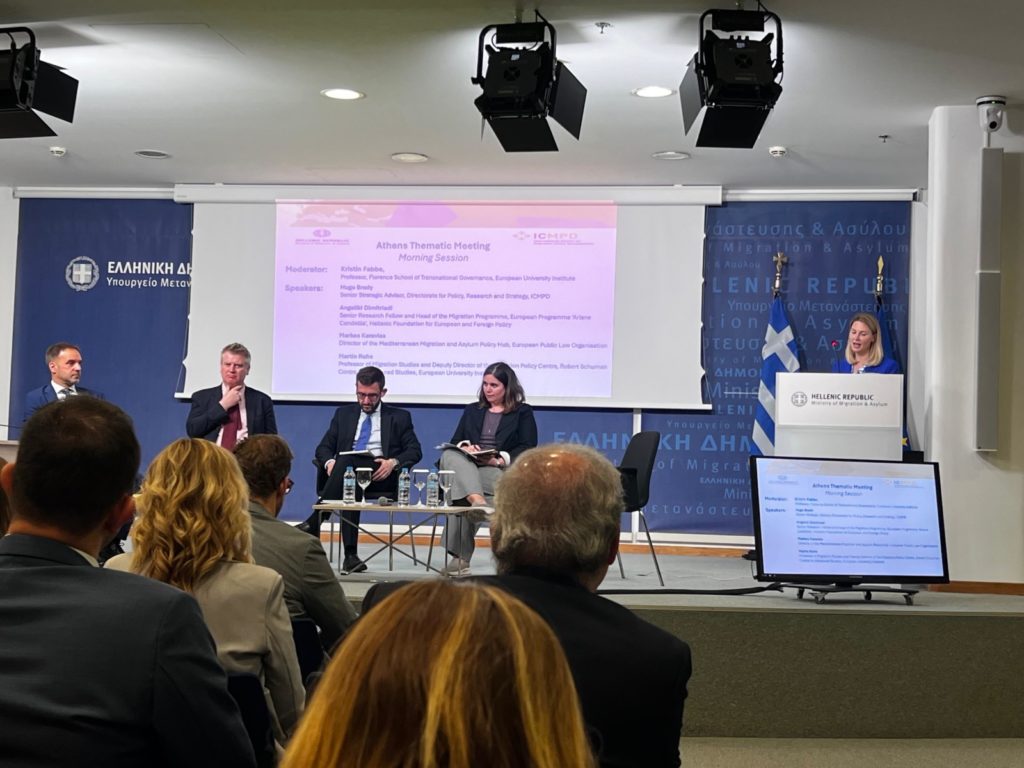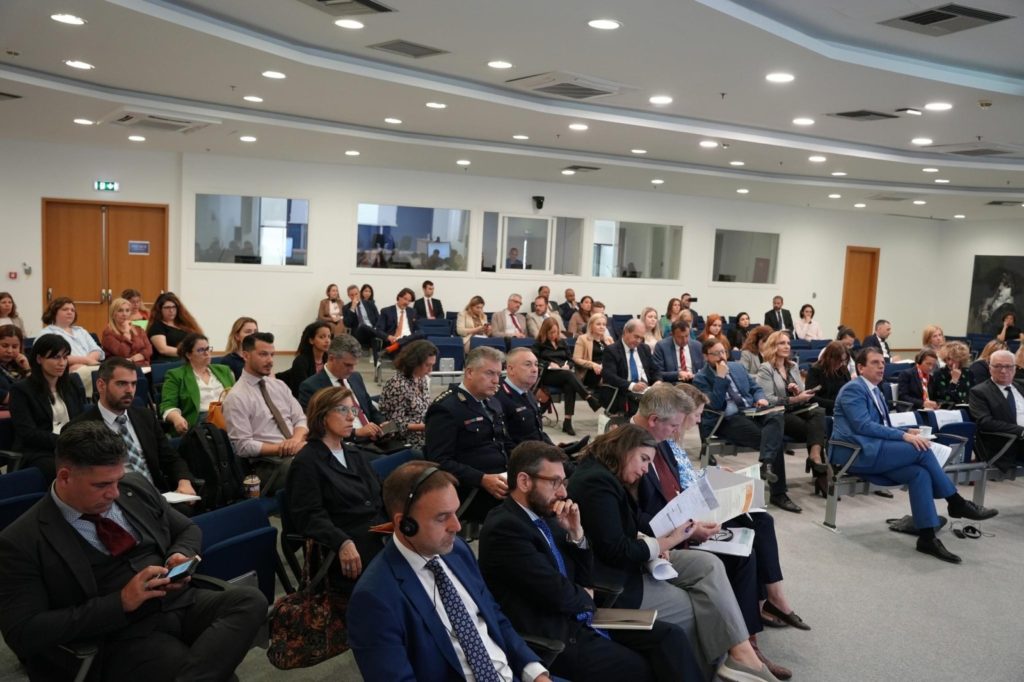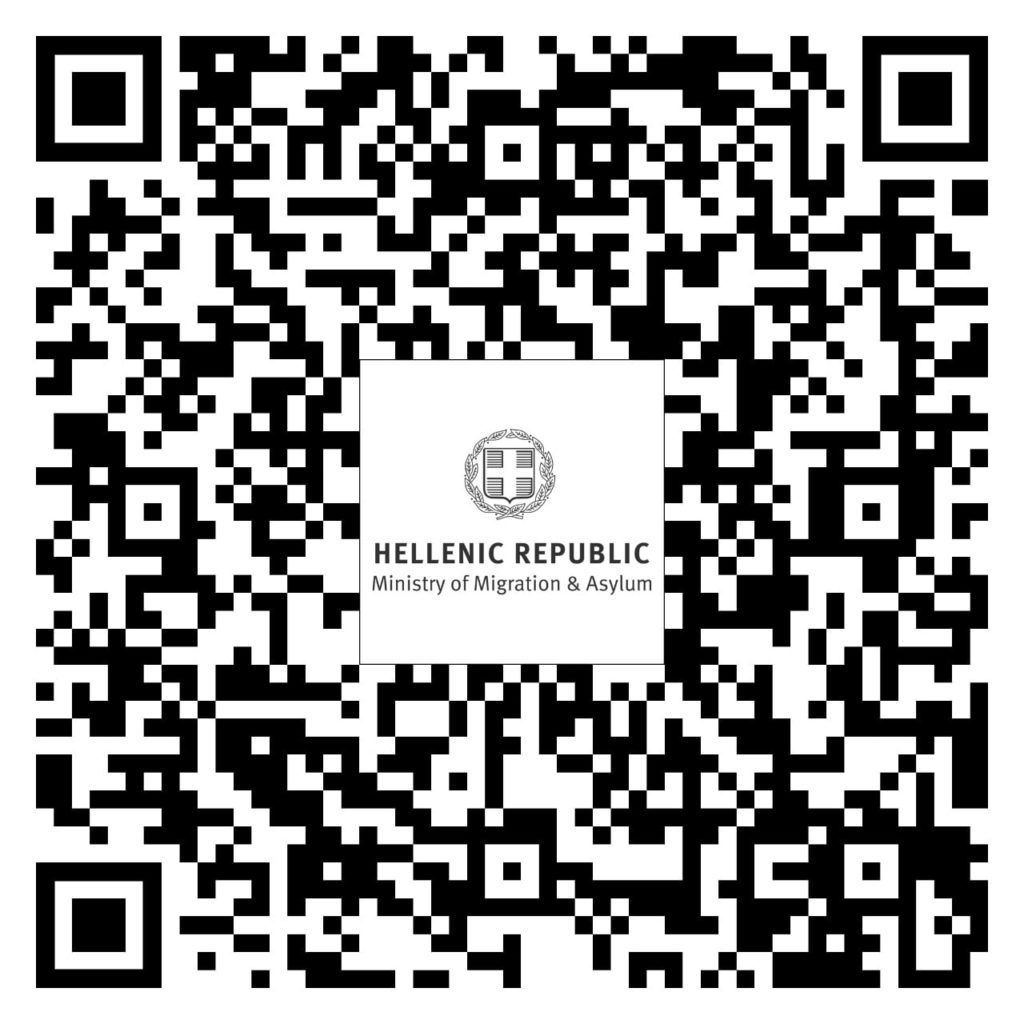An international event on the external dimension of migration management and the available and innovative tools for the enhancement of regular pathways was organized in Athens, on 25th April 2024, by the Directorate for European and International Cooperation, at the Auditorium of the Ministry of Migration and Asylum, in the framework of the Greek Chairmanship of the International Centre for Migration Policy Development (ICMPD) Steering Group. The meeting was attended by representatives and experts in the field of migration and asylum from international organisations (UNHCR, IOM, OECD, IGC), national authorities, academia, and research centres, from Greece and abroad.
The Secretary General for Migration Policy, Mr Patroklos Georgiadis, and the ICMPD Deputy Director General, Mr Lukas Gehrke, welcomed the event.
The Minister of Migration and Asylum, Mr Dimitris Kairidis, gave a keynote speech, focusing on the progress achieved by Greece in the area of migration management, on Greece’s cooperation with third countries, on the importance of the new EU Pact on Migration and Asylum, as well as on the challenges lying ahead in view of the European Parliament elections.
An intervention followed by Ms Alix Mueller-Rappard, European Commission representative, regarding the new EU tools for the promotion of legal migration, such as Talent Partnerships and the EU Talent Pool.
In the first discussion panel, the speakers approached the issue of legal migration at national, European and international level. With Ms Kristin Fabbe, Professor at the European University Institute (EUI), as moderator, the participants of the panel, Mr Hugo Brady (ICMPD), Ms Angeliki Dimitriadi (Hellenic Foundation for European and Foreign Policy / ELIAMEP), Mr Markos Karavias (EPLO/MedMA) and Professor Martin Ruhs (EUI) discussed the future of migration and international protection, the implementation of the new EU Pact, the possible interconnection between the development of legal pathways and the prevention of irregular flows, as well as the role that labour migration agreements concluded with third countries, can play in this. Moreover, there were presented relevant research data relating to the degree of public support towards the EU agreements on migration and the cooperation between the EU and third countries.
Following the above, Ms Marija Raus (ICMPD) presented the “Migrants Resource Centres”, which are operated by ICMPD in important countries of origin with the aim to inform the local population about the available legal migration pathways. Mr Adam Hunter (USA) then gave an insight into the USA initiative of “Safe Mobility Offices”, which have been created in order to direct mobility towards regular migration pathways or granting of international protection and are supported by UNHCR and IOM.
Το δεύτερο πάνελ ομιλητών, με συντονιστή τον Διευθυντή Διεθνούς Μετανάστευσης του ΟΟΣΑ, κ. Jean-Christophe Dumont, αποτελούμενο από την κ. Marija Raus (ICMPD), τον κ. Gianluca Rocco (ΔΟΜ), την κ. Jannatul Firdaus Rupa (Μπαγκλαντές) και την κ. Sandra Vermuijten (Γερμανία), εστίασε στην αναπτυξιακή διάσταση που μπορεί να έχει η νόμιμη μετανάστευση, τόσο για τη χώρα προορισμού όσο και προέλευσης, τη βιωσιμότητα των νόμιμων οδών μετανάστευσης, καθώς και τη συνέργεια των δράσεων των εθνικών αρχών και του ιδιωτικού τομέα.
The meeting was concluded with the closing remarks presented by the Director for European and International Cooperation of the Ministry of Migration and Asylum, Ms Angeliki Grammatikopoulou, summing up the main conclusions of the discussions that took place throughout the day.



